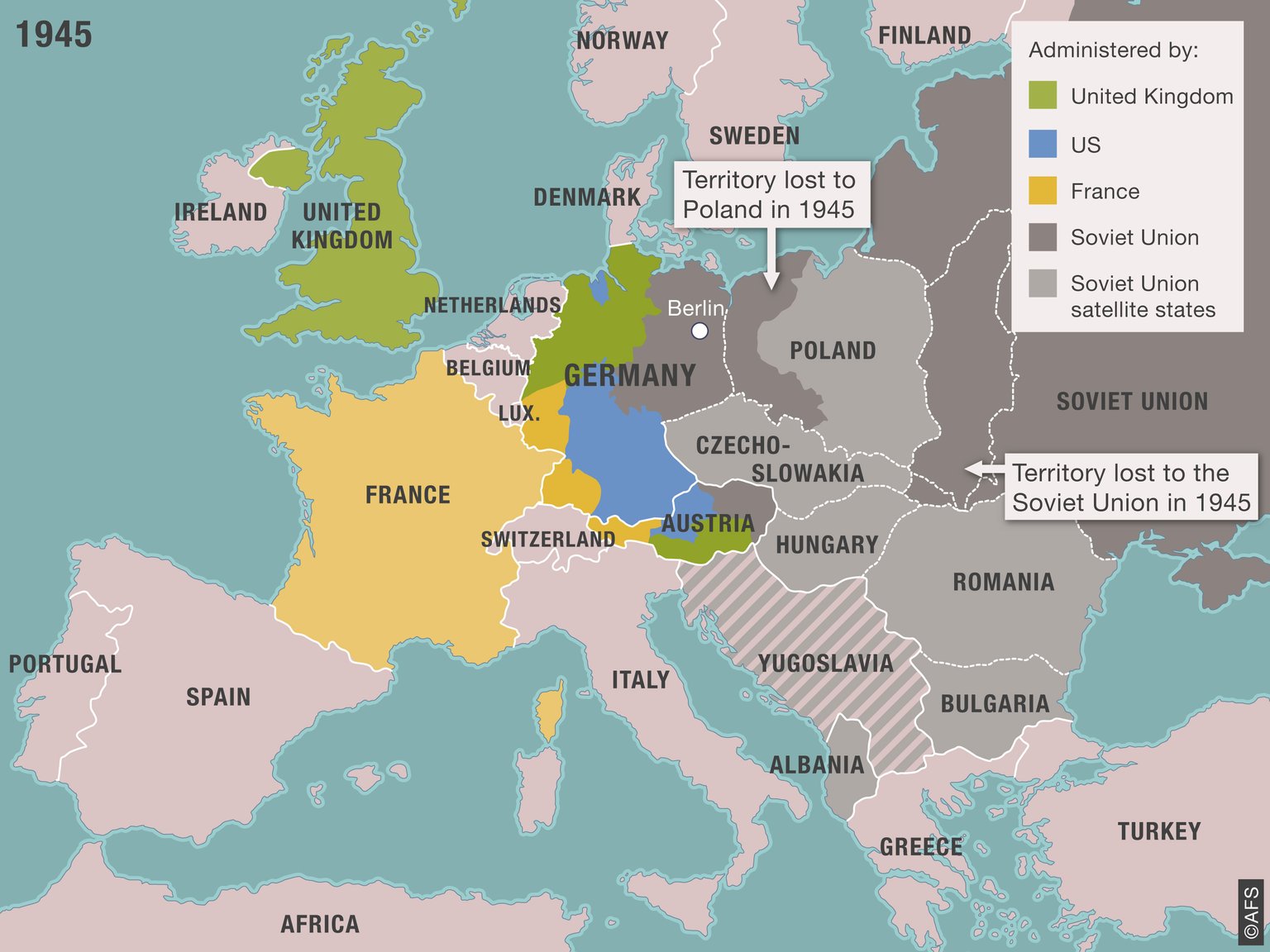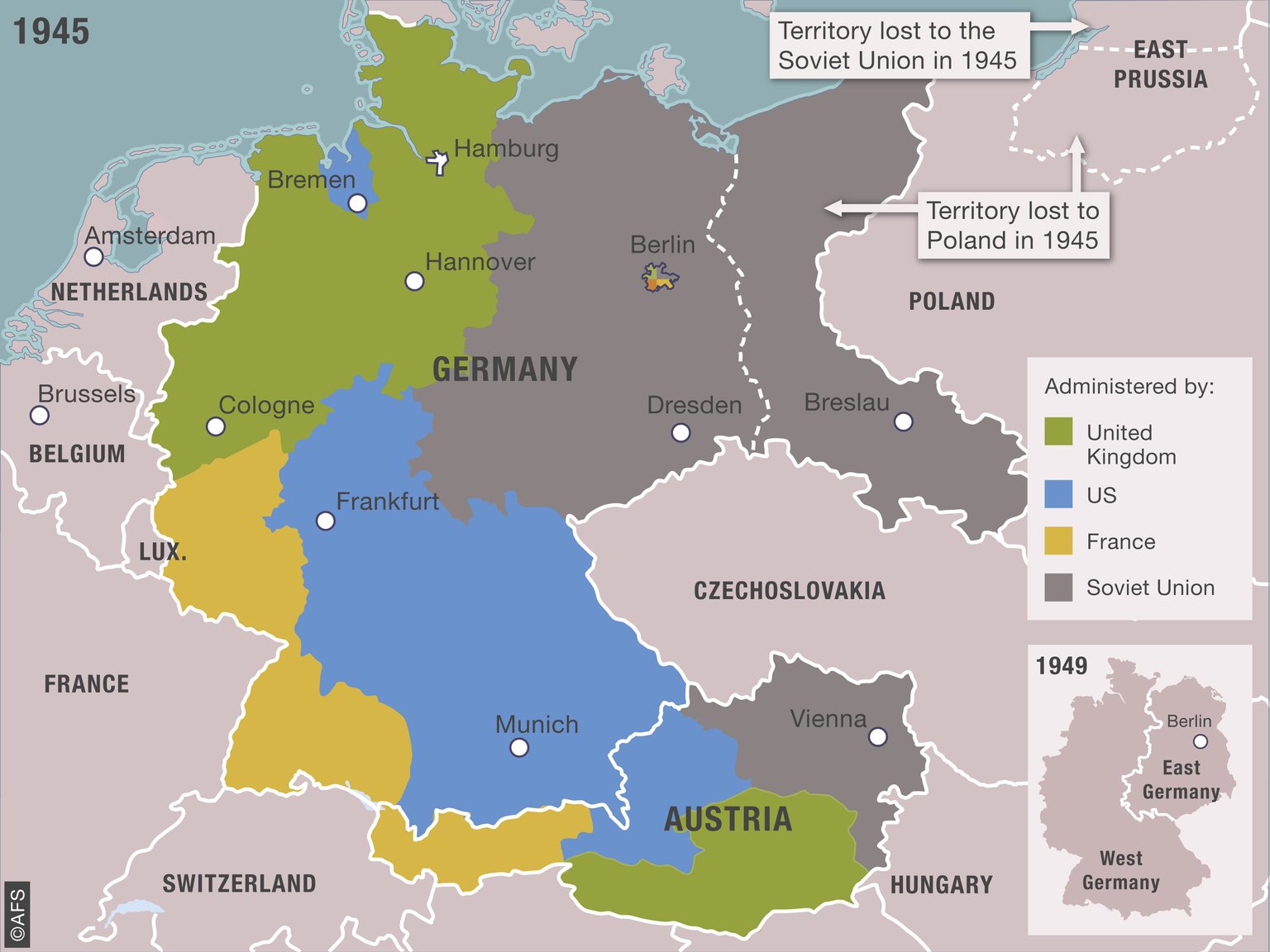On 17 July 1945, the Potsdam Conference started. The three participants were the Soviet Union, the United States and the United Kingdom, the main Allies. At the conference, they discussed the future of Germany, which had just been defeated.
The Allies did not want a repeat of the Versailles Peace Treaty. Its heavy demands had been one of the causes of the Nazis’ rise to power. Still, Germany had to change. The Nazi influences had to disappear and Germany had to become a democracy. Germany also had to pay war damages. Some of its factories were dismantled and transported to the Soviet Union.
With the common enemy defeated, the differences between the Soviet Union and the Western powers surfaced. Both sides had different plans for ‘their’ part of Germany. Stalin wanted a communist regime in Germany, while the Western countries wanted a democratic Germany.
After the Federal Republic of Germany was founded by the Western Allies on 23 May 1949, the German Democratic Republic was proclaimed in East Germany on 7 October of the same year.

